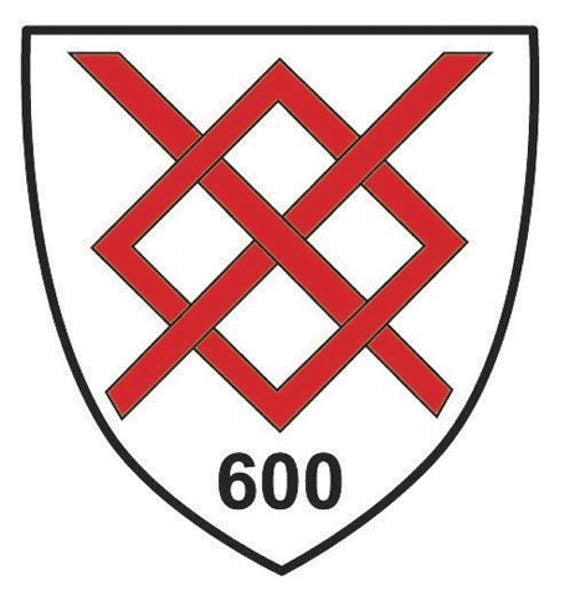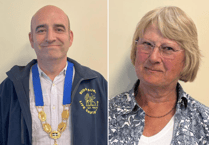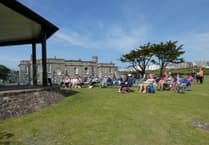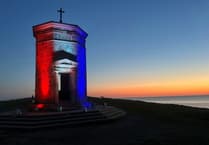THE Blanchminster Trust is potentially the oldest continuous grant-giving charity in Britain.
The Trust is administered from its offices in Lansdown Road by 13 trustees, with a clerk and secretary.
This year, 2021, the Trust officially celebrates 600 years since its foundation.
Although the family can be traced back to the late 12th Century, the days of Robin Hood and Richard the Lionheart, the earliest dated record is from 1421, the time of the Hundred Years’ War, Joan of Arc etcetera.
The Blanchminster dynasty was housed in Binhamy Castle, a grand dwelling with a square moat, just below the present Lidls. Most of the eldest known male Blanchminsters were called Ralph or Ranulph. The building was given a licence to one Sir Ralph de Blanchminster by Edward III to crenelate in 1335. The site is now a listed monument.
It is said that, when an earlier Sir Ralph de Blanchminster returned from the Crusades, he discovered his wife had thought him dead, and remarried. He spent his remaining days living rough in the land around the castle, and his ghost can be seen in the former moat.
The last Sir Ralph de Blanchminster gave a large sum for the upkeep of St Andrew’s Church in Stratton; for the provision of armour for the local militia and alms for the poor. His effigy is in the north aisle of St Andrew’s.
In the early days, St Andrew’s Church benefitted from grants for a new north aisle, stone for the high altar, for the organ, a set of bells, their James l Bible, communion cup and plate and a pillory, stocks and ducking stool.
In 1588, there was much expenditure on ‘preparations to resist the expected Spanish Armada’, including the building of a warning beacon, the provision of weapons and armour, and payment for delivery of the Queen’s messages by the provision of horses for Sir Richard Grenville .
An important role of the Trust has been helping those in need. For example, in 1569, ‘eighteen pence was given for a shroud for an Irryshe chylde that dyed in Nicholas Bond’s house’. In 1582, six pence ‘to a poor man that had lost a barke and all his good upon the sea’, in 1794 ‘John Cotton was paid 7s 6d for inoculating 3 children’, and in 1934, a father received 40 shillings towards his child’s coffin.
Throughout the 19th and 20th centuries, help was given in the form of groceries, coal, medicine, surgical supplies and transport to hospital. Annual subscriptions were made to Stratton and Bude Clothing Clubs and to several hospitals including, of course, Stratton Hospital, where grants have been made for building extensions and equipment.
The charity has always supported education and, during the 20th Century, allocated funds for building projects and libraries in all its local state schools.
In the 1920s, the charity also paid £10 for each child gaining a scholarship, but these children had not only to be recommended, but also pass a qualifying examination.
In 1932, before school milk was provided, the charity paid 3d a week for poor children to have a hot cup of Horlicks at playtime.
Applications for grants continue to come from local individuals, schools and youth groups. Help has been given for sports facilities and equipment, musical instruments and travel in the interest of young people in the area.
In the past, the trustees have even taken an ‘interest’ in the general welfare of Bude County School. In 1922, we read that ‘Trustees regard with deep concern the common report that there is a serious lack of unity between the Headmaster and his staff’.
From time to time, the trustees have received complaints about their tenants. For example, in 1900, W Wonnacott complained that tenants in King Street were using his field — Sullivan’s Meadow — to dry their clothes. ‘It was resolved that the tenants be told to stop doing this’.
Various tenants complained that their neighbour’s poultry caused an annoyance — it was resolved that ‘no more than six female birds be kept in any back yard, and no male birds’.
It was reported that ‘Ten persons were living at a house in King Street and the tenant was requested to reduce the number — they agreed to comply’.
In 1902, ‘The clerk is requested to write to a certain tenant stating that it is commonly reported that this tenant is harbouring a woman’ not his wife, and he is requested to immediately arrange for her to leave or his tenancy would be terminated’
In Victorian times, the Trust paid for the inoculations against smallpox as well as finance for local ‘hue and cry’ law and order.
More recently, over the years, grants have included libraries for local schools; grants to local students at university and further education colleges; refurbishment of village and church halls; a Blanchminster Room in Bude Castle; help for those in need etcetera.
In September 2021, The Blanchminster Trust will be awarded the Awen Medal by the Cornwall Gorsedh in recognition of 600 years of service to the community.
A celebration concert will be held in the Parkhouse Hall on September 25 and a commemorative service in St Andrew’s, Stratton on October 10.
Owen May, the Senior Stockwarden (chairman), said: “We are very proud to be trustees of this long-established charity that has served our local community for so many years.”





Comments
This article has no comments yet. Be the first to leave a comment.